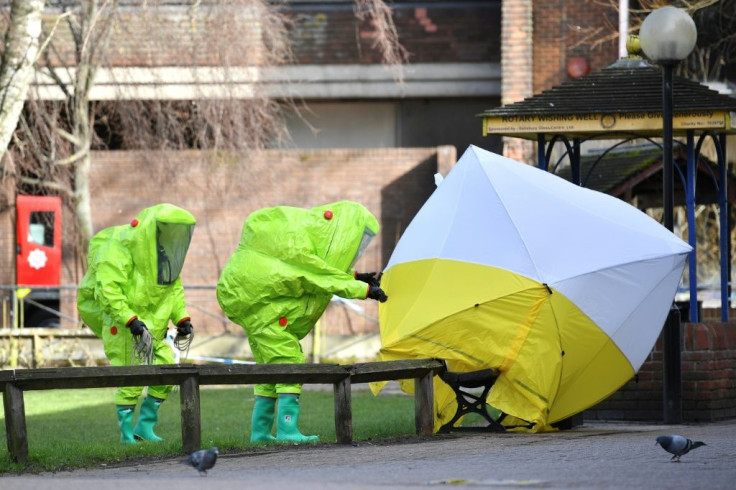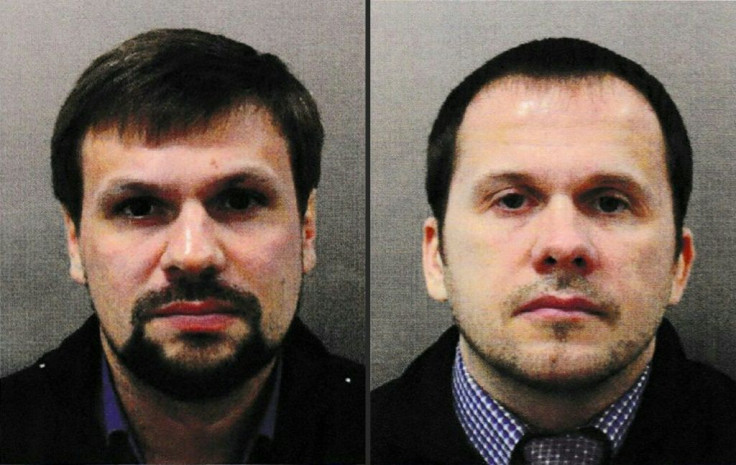Navalny Poisoning Stirs Anger In English City Hit By Novichok

A long way from the cauldron of Russian politics, the picturesque city of Salisbury is contending with painful memories and a burning sense of injustice as the nerve agent Novichok again hits headlines.
The cathedral city in southwest England is all too aware of the chemical weapon's terrifying potency, as survivors of a March 2018 attack follow news of Russian opposition leader Alexei Navalny's fight for life in a German hospital.
The previous attack in Salisbury targeted Russian former double agent Sergei Skripal, who was living in the city. He and his daughter, Yulia, survived.
But four months later, homeless woman Dawn Sturgess died after coming into contact with a perfume bottle thought to have contained Novichok.
Sturgess' boyfriend, Charlie Rowley, was also exposed and spent nearly three weeks in hospital.
He says he felt "devastated" after hearing of the attack on Navalny, which Germany says bore "unequivocal evidence" of the use of Novichok.
"I thought it was over but it clearly isn't," Rowley told ITV News in an interview broadcast on Thursday, recounting a debilitating range of long-term physical and mental health problems he has suffered since 2018.
"I think it gives the Russians some strength that they can do their business and get away with it," he added.
"I feel justice hasn't been served and I hope this new incident will bring on more news and we will get some truth."

Skripal and his daughter were found slumped on a bench in central Salisbury. Both spent weeks in hospital and now live in an undisclosed location under official protection.
The bench was removed for investigation by police wearing biohazard suits, and two sites the Skripals had visited were cordoned off for weeks.
Today, a discoloured patch of empty pavement marks the site of the bench in the Maltings retail area, which is again busy with shoppers, many wearing masks as a precaution against the coronavirus.
The two places visited by the Skripals on the day they fell ill -- the Italian restaurant Zizzi and the Bishop's Mill pub -- are back doing brisk business after months of Covid-19 lockdown.
Kelvin Inglis, vicar of St Thomas's Church, whose parish includes the Maltings, said Salisbury's resilience had been sorely tested over the past two and a half years.

"It was traumatic at the time," the reverend told AFP.
"We had two waves of trauma with the initial attack and four months later when Dawn Sturgess died.
"But since then people have pulled together and we have been busily rebuilding after all the challenges of this year."
Echoing Sturgess's boyfriend, Inglis added: "I still long for the day when the culprits of the Salisbury attack are brought to justice for their criminal act.
"Equally, I hope that whoever has done this latest terrible deed will be brought to justice."
Wiltshire Police Detective Sergeant Nick Bailey almost died after he was also exposed to the chemical agent in 2018.
He was one of the first officers to enter the Skripals' house on the edge of Salisbury, which still stands empty, plastic sheeting on the windows and a pile of post visible behind the front door.
The handle of the front door -- since replaced -- was said to have been smeared with Novichok.
Bailey's story featured prominently in a hit BBC drama this year called "The Salisbury Poisonings", which was dedicated to the memory of Sturgess.
"I have so much that I want to say about this tweet," he wrote on Twitter on Wednesday, responding to a message from Prime Minister Boris Johnson condemning the Russian government after the attack on Navalny.
"But I can't, and I won't," Bailey said. The next day he followed up to express regret at sending "such an ambiguous tweet", saying "emotion got the better of me".
The policeman's wife Sarah Bailey was clearer in pointing blame at the British government, which has long stood accused of turning a blind eye to questionable flows of Russian money into the British economy, and into Conservative Party coffers.
"It's been almost 2 1/2 years after the events in Salisbury and there has been no justice for Dawn and her family and none for the Skripals, Charlie (Rowley) or us. And now it's happened again," she tweeted.
"There appears to be no consequences for the culprits. The Government are right to condemn these actions, but in 2 1/2 years will it be forgotten about? That's how it feels for us. #RIPDawn."
© Copyright AFP {{Year}}. All rights reserved.





















